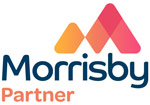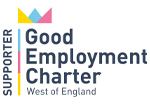Blog

Demystifying University Degree Choices: MOOCs & University Tasters
May 2025
Whether you want to preview university subjects before committing to a degree or explore emerging industries like data science, AI or sustainable design, MOOCs and Taster Days & Sessions can help. With accessible online courses, residentials and workshops at your fingertips, you’ll feel less alone making those all-important decisions.
What are MOOCs?
The acronym ‘MOOCs’ stands for Massive Open Online Courses.
These are free or low-cost online classes designed to be accessible to large numbers of people, regardless of their location. They’re offered by universities, colleges or online learning platforms and cover a huge range of topics – from computer science and art to psychology. Many MOOCs are university level, giving tasters into course content. While others are non-academic or tailored to beginners.
MOOCs are hugely reputable. And this is largely because much of the learning comes from top universities such as Harvard, MIT and Stanford among others.
Fun Fact: The MOOC Market size is estimated at USD 31.74 billion in 2025, and is expected to reach USD 165.87 billion by 2030, at a CAGR of 39.2% during the forecast period (2025-2030). That’s significant. And it’s easy to see why MOOC popularity is growing. Benefits of MOOCs include:
- The ability to add value to university or job applications
- Access to up-to-date and relevant content from top institutions
- Interaction with a global learning community
- Self-paced and personalised learning
- Access to a diverse range of subjects for free
Where Can I Find MOOCs?
Good news! MOOCs are easy to find. Check out MOOC List. This website is a bit like a search engine or directory for online courses. It catalogues MOOCs from different platforms around the world and is a great place to start if you’re new to the MOOC world or looking for inspiration.
Highlights: You can search for courses by subject, institution, provider, start date, duration and free/paid status. You can also filter by language, level and certificate availability. You can discover new MOOCs without going onto each individual platform.
Are MOOCs Free?
MOOCs are usually free or low-cost. But it can be helpful to know whether there is anything you might expect to pay for. Typically, you’ll get free access to course materials, videos, recordings and discussion forums. You can usually audit the course for free too, which means you can go through the content without getting a certificate.
So, what costs might there be? – Some free courses will offer the option to pay for certificate of completion, graded assignments and exams and access to features like instructor feedback or peer-graded work.
Which Are The Most Popular Online Learning Platforms?
There are many online learning platforms to explore at your leisure, but Coursera is one of the most popular. Founded by two Stanford University computer science professors, it offers thousands of online courses in partnership with over 200 of the world’s leading universities and companies, including Yale, Princeton, Penn, Stanford, Google, IBM and more.
Simply enrol for free and enjoy access to courses that might make your future choices clearer. For example, if you’re in Year 12 and thinking about studying Philosophy at degree level, a relevant Coursera course could you some insights into how much you will enjoy studying the subject before committing to a university course and the fees that go with it.
FutureLearn, is another leading education platform and, like Coursera, provides courses from top universities and institutions around the world. The platform emphasises effective learning through storytelling, discussion, visible learning and community support. Most courses are completed at your own pace across six to ten weeks, but usually requiring a couple of hours of commitment per week
As well as topic-specific course, those thinking about university can also put their minds at ease with a Next steps to university course, delivered by the University of York. This provides insights into life at a UK university and how to maximise your experience.

Top Universities
The University of Oxford also has a wealth of online courses in subjects from Religion and Theology to Natural Sciences. And, if you’re a Jane Austin fan, there’s something for you too.
Are MOOCs Recognised by Universities?
While MOOCs don’t replace formal qualifications, they can strengthen university applications and show initiative. They also help with prerequisites for certain programmes such as brushing up on calculus before an engineering degree.
That said, some universities allow MOOCs to count for transfer credits or prior learning assessments. Typically, there are partnerships between MOOC platforms and universities, so credits earned in a MOOC might only count at a specific institution.
What are University Taster Days and Sessions?
University taster sessions and days offer a valuable glimpse into academic life and subject-specific learning at degree level. They can help demystify what it’s really like to study a subject, interact with lecturers, and explore campus life—whether virtually or in person.
These experiences can help you to make more informed decisions about what and where to study. Attending a taster also shows initiative and curiosity, which can strengthen university or apprenticeship applications.
For many, it’s a chance to ask questions, meet like-minded peer and picture themselves in a future setting—something that’s hard to do from a website or prospectus alone.
Where Can I Find Out About Uni Tasters Days and Sessions?
Individual universities run a range of sessions. Many of these can be found on the UniTasterDays website. Of course, you can check individual university websites too. But don’t leave it too late as sessions will get busy and enrolment is from now onwards!
Below are just a few examples of 2025 offerings:
- Aston University Summer School for those considering Chemical Engineering and Biotechnologies. Discover what it’s like to study chemical engineering at university level and get a feel of how the university operates.
- University of London’s RVB Biosciences Taster Day. An introduction to biosciences for Year 12 students. A similar day is also available at the Royal Veterinary College, at the London Campus.
- St Mary’s History and Politics Masterclass Day is also great for anyone in their first or second year of Sixth Form/College.
- Nottingham Trent – Experience Psychology Taster Day
Where Else Can I Find Uni Subject Tasters?
UCAS also offers subject tasters remotely. Subject Spotlights give you the chance to try a university course before you apply and all courses are delivered by the lecturers themselves, allowing you to gain insight into what it’s like to study the course.
Not only will this give your application a boost, but it’ll help you to feel confident in your decisions. From Accounting and Finance to Creative Arts and Design, the world is your oyster. So, make sure you know what’s out there.
In Summary
Everyone’s future looks different. But with a wide range of online courses, open days, workshops, taster sessions and more to support decision making, you can carve the right path for you. Whether you’re exploring a subject for the first time or narrowing down your degree choices, MOOCs and taster days offer flexible, accessible ways to gain insight and build confidence. Taking the time to explore your options now can help you make more informed—and exciting—choices for the future. Best of luck!
How can our Careers Advisers help?
At FutureSmart Careers, we specialise in providing impartial, personalised careers guidance to help young people make confident decisions about their futures. Whether you’re weighing up university options, exploring alternative routes like apprenticeships, or unsure where to start with MOOCs and taster sessions, our expert advisers are here to help. We work with schools and colleges, and also support students individually through one-to-one guidance sessions and tailored advice. Get in touch to find out how we can support you or your students enquiries@futuresmartcareers.co.uk
Images sourced from Freepik



 0330 311 9509
0330 311 9509 







